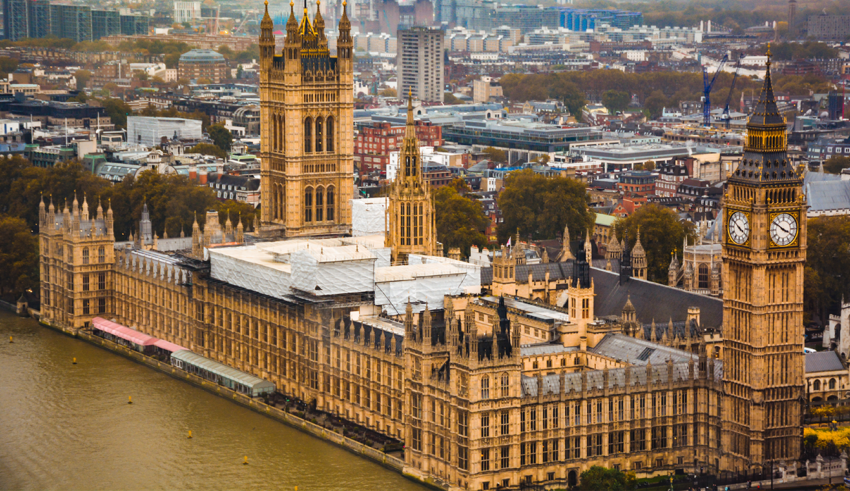AG INSIGHT | 03/11/2021
We won’t save the planet if the UK decarbonises by deindustrialising

In this blog, Dr Laura Cohen MBE, Chief Executive at the British Ceramic Confederation, calls on Government to engage with and support the ceramics sector as UK heavy industry decarbonises, warning that without clear action, the UK risks decarbonising by deindustrialising.
We are all hoping for great things from COP26, but to show leadership ahead of the summit, the UK Government must step up to support ceramics and other energy intensive industries as they face real challenges in the push to meet net zero targets.
The UK Government’s Industrial Decarbonisation Strategy requires emissions to reduce by at least two-thirds by 2035, and 90 per cent by 2050 compared with 2018 levels, without pushing emissions and business abroad.
To be able to decarbonise by 2050, and with typical kiln operating lifetimes of 25 to 40 years, companies need access to low carbon compatible infrastructure and equipment. Supporting policy frameworks need to be in place by 2025 at the latest, and implementation must start at that point. But the technologies we need to deploy are not developed yet.
Almost all of the British Ceramic Confederation’s members’ 150 sites are located away from Government’s designated hydrogen and CCUS clusters. To switch from firing with gas, we need to move to hydrogen, bioenergy, or electricity, and we need policy interventions now for off-cluster manufacturers to remain competitive, both nationally and internationally, over this extended period until options to decarbonise are widely available.
For example, the British Ceramic Confederation welcomed the recommendation in the recent Aldersgate Group report [i] (Accelerating the decarbonisation of industrial clusters and dispersed sites) which advocated for targeted free UK ETS carbon allowances for off-cluster sites in this interim period, to avoid a competitive disadvantage and the risk of carbon leakage. This is just one example of a more nuanced practical approach on policy that UK Government needs to apply.
Even before the current energy crisis, most of the British Ceramic Confederation’s member companies were paying an eye-watering £130/MWh – at least 70% more than average EU competitors and more than double what UK steel manufacturers were paying.
Rather than ‘levelling up’, Government continues to choose policies that have piled on policy costs to ceramic manufacturers. For example, unlike many overseas competitors, and indeed, most other UK energy intensive sectors, just five of the British Ceramic Confederation’s 90 member companies have renewable electricity exemptions. This makes electrification very challenging economically.
Given the scale of the challenge, we need much more Government funding and supportive policies to develop and implement decarbonisation technologies for these off-cluster sites.
The ceramic industry will continue to deploy proven technologies where they are economic and available, but without co-investment from Government, companies will struggle to take a lead in the enormous and risky development of the large number of future technologies needed.
The British Ceramic Confederation put forward a Spending Review proposal to create a Virtual Ceramics Sustainability Hub to support the collective development and deployment at pace of a whole package of ceramic decarbonisation technologies and the necessary cultural change. Seventy-five per cent of the sector provided letters of support for this work. The British Ceramic Confederation had asked initially for £5 million in 2022/3, as the first part of a phased £65 million scheme over a three-year spending period, matched by companies. This portfolio is too expensive, risky, and complex for individual companies to fund; we need the Government co-investment.
The proposed Hub would act as a catalyst for further investment across the supply chain.
However, the funding does not seem forthcoming at this stage and the ceramics industry is still facing a difficult transition from the use of fossil fuels to greener energy. This is disappointing ahead of COP26. The ceramic sector remains ready to play its part, but we need Government to step up too.
With the right support, the UK ceramics sector and its supply chain has the potential to become a global leader in low-carbon, sustainable manufacturing technologies.
The pandemic and our net zero targets have reinforced the need for establishing strong and resilient industrial supply chains in the UK using decarbonisation and low carbon products to improve the competitiveness of UK heavy industries.
Events in recent weeks have shown that customers will not buy lower carbon British made products if they cost more because of higher UK gas, electricity, and carbon prices.
There are real concerns that without adequate policy and technology support during the transition away from fossil fuels, the UK ceramics sector risks offshoring important businesses, jobs and investment, that are the beating heart of so many communities outside of London and the South East, in areas in need of ‘levelling up’.
Government has said our net zero transition must happen while keeping manufacturing businesses within the UK. Government needs to meet its promise by delivering practical and timely outcomes that support our ceramics industry on this very challenging journey.
We need Government to engage and support the ceramics sector now, otherwise the UK risks decarbonising by deindustrialising. Exporting jobs and importing carbon will not save the planet.



